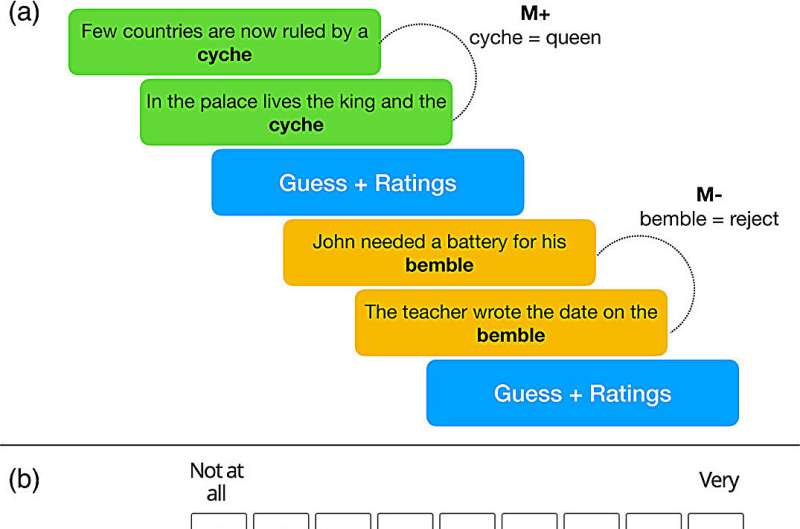
New research led by academics at Royal Holloway, University of London, published in Developmental Science, suggests that children and adolescents remain excited by learning new words, all the way until adulthood.
The study, led by Professor Saloni Krishnan from the Department of Psychology, investigated how much children and adolescents enjoy learning the meaning of new words, as well as how well they retain them over time. This would suggest that such learning can be intrinsically motivating.
Recent research has demonstrated that adults experience a feeling of reward or “buzz” when they successfully learn new words which significantly enhances long-term memory retention of newly acquired words. This is linked to a dopaminergic circuit in the brain, which typically lights up for external rewards such as money.
The researchers in this study set out to apply these findings in children, to see if they feel the same way about learning and remembering new words.
The study involved 345 children between the ages of 10 to 18. The children were given 40 self-paced trials, which involved pairing two sentences to make sense of the new word they were learning.
Children were tasked with working out the meaning of a new word by making a prediction based on the sentence context. They were then asked to rate their emotions, including confidence, happiness, and excitement, after every question.
The research found that not only did the children and adolescents learn and retain the words, but they also found the experience of successfully learning to be enjoyable. This is the first demonstration that language learning is intrinsically rewarding in children and provides clues to why we seek out and enjoy learning words (unlike our closest evolutionary cousins the chimpanzees).
Professor Saloni Krishnan, from the Department of Psychology at Royal Holloway, said, “It was important to carry out this rigorous research to understand why children learn words.
“Our findings conclusively demonstrate children find such learning intrinsically rewarding—and don’t need external rewards like validation. I think the experience of enjoyment is an important signal to seek out new knowledge and build our vocabulary.
“This helps us identify the aspects of learning that children find rewarding, and in the future, could help us to design more engaging programs. For example, in my lab, we’re now assessing if neurodivergent children, such as children with dyslexia, experience reward in the same way.”
More information:
Amrita Bains et al, The role of intrinsic reward in adolescent word learning, Developmental Science (2024). DOI: 10.1111/desc.13513
Citation:
Children and adolescents enjoy learning new words, study finds (2024, May 2)
children-adolescents-enjoy-words.html
.
. The content is provided for information purposes only.
